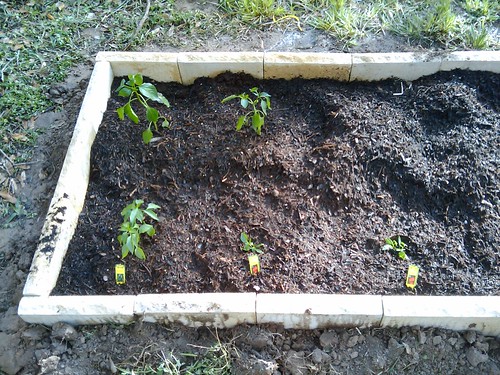
People who start doing organic gardening do so because they don’t like toxic effects of pesticides and fertilizers. Another benefit is that organic gardening techniques are often cost little-to-nothing. Here are some strategies to aid you in becoming a good organic gardener.
Are you a parent? If you are, try planting some strawberries like everbearing strawberries in your garden. Kids really enjoy plucking snacks directly from the ground, and may have greater enthusiasm for the work if they see the results of their labor right away.
Your children will enjoy the experience of working with you in the organic garden. A garden can teach your children about the joy of rewarding work and nutrition while bonding.
Using aspirin water will help your plants fight diseases. To add the aspirin to the plant, dissolve about one tablet and a half into approximately two gallons of fresh water. You can easily spray the plans with this concoction to help them fight of disease. Give your plants a spray of the aspirin-water mixture about one time every three weeks.
For in-home organic gardeners, you are looking for an ideal temperature of around 60-75 degrees for your plants. Young plants need a temperature within that specific range to grow. These temperatures may not be comfortable for you, however. As an alternative to keeping your entire home that warm, consider getting heat lamps for your organic plants.
Use this simple tip to get your perennial garden ready in a flash. Use a spade to dig up some soil, flip the soil over, and finally, sprinkle around 3-4 inches of wood chips on the soil. Give the area a couple of weeks, then dig into it and plant your new perennials.
If you plan to raise organic plants inside, you need to think about how much light they will get. If you live somewhere without strong natural sunlight, you might want to look into growing plants that thrive in lower-light environments. You can also try using artificial lighting to help.
Tools Handy
Keep your tools handy to work more efficiently. Carry your tools in a bucket, or keep them in the pockets of a pair of rugged pants. Keep your gloves, a trowel, small pruning shears and other tools handy and make quick work of your garden maintenance.
Try using coffee grounds on the soil. Plants can use the nitrogenous nutrients found in coffee grounds. Nitrogen is generally a way to make your plants grow bigger, better and faster.
Organic material piled three inches deep is an effective mulch in your flower gardens. By doing this, you can lock in moisture, discourage weed growth, and nourish your plants. Your flower beds should also look beautiful all year long.
You may find an old plastic laundry basket ideal for gathering vegetables from your garden. It makes a great strainer for your vegetables. You can rinse your produce off while it is in the basket, and the excess water will strain through the holes of your laundry basket.
Plant Material
In your compost, use green and dried plants in equal parts. Green plant material consists of spent flowers, veggie and fruit waste, leaves, weeds, and grass clippings. Dried plant material comprises shredded paper, cardboard, sawdust, and straw. Avoid using ashes, charcoal, diseased plants and meat-eating animal manure.
Stay on top of your organic gardening to-do list, and don’t let the work pile up. Even doing just a few small things each day can keep chores from piling up and eventually becoming unmanageable. This will save you a lot of time in the long run. You can pull a few weeds when you take your dog outside.
Utilizing the advice provided in this article in your organic gardening efforts will produce great results. You will quickly see your garden becoming more productive and healthy, while being free of toxins. You can also look forward to a rise in the number of wild visitors you receive in your garden.
Find out just what becoming a certified landscaping professional can do for your organization at Planet Professional Landcare Network


Recent Comments